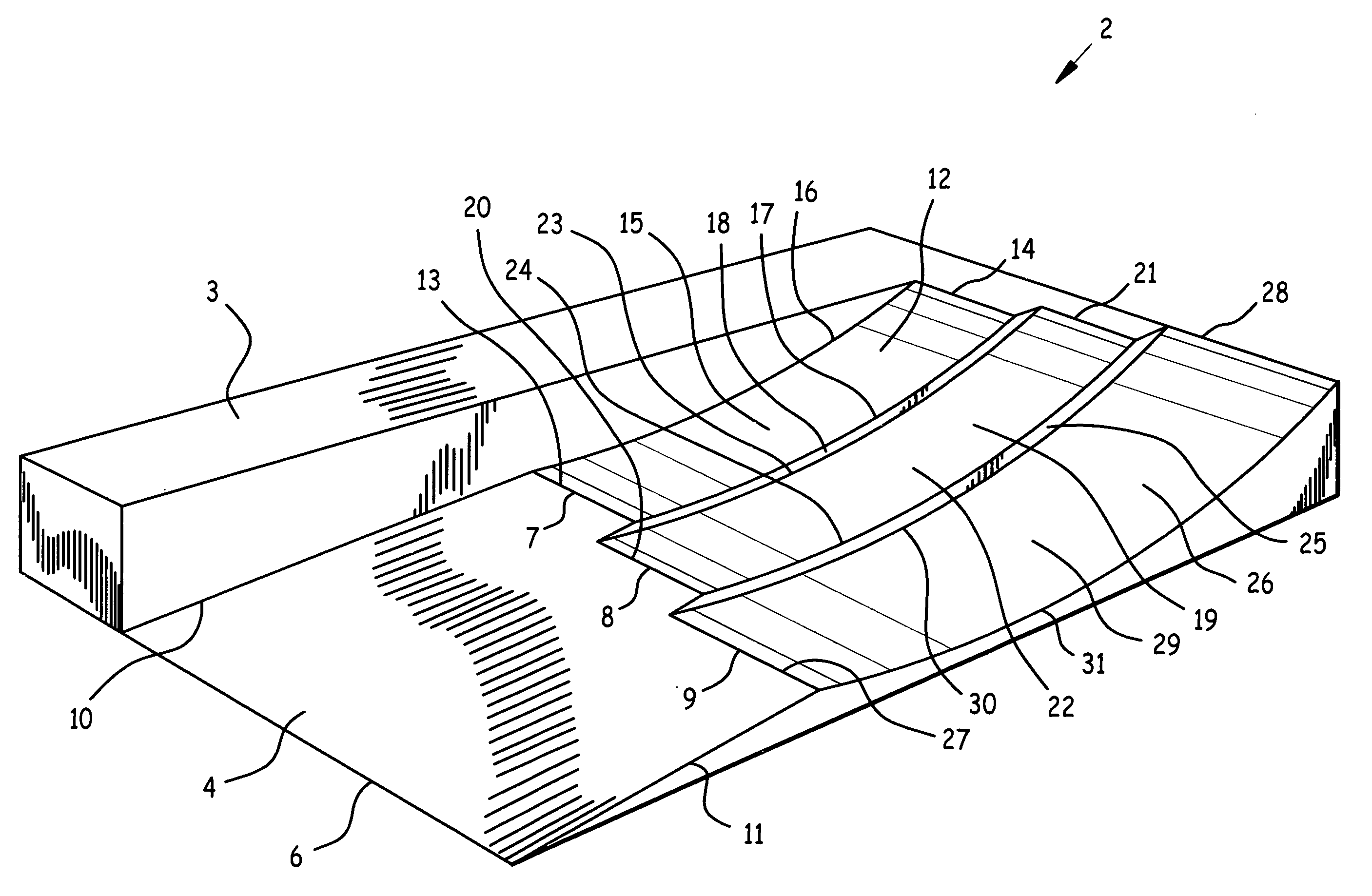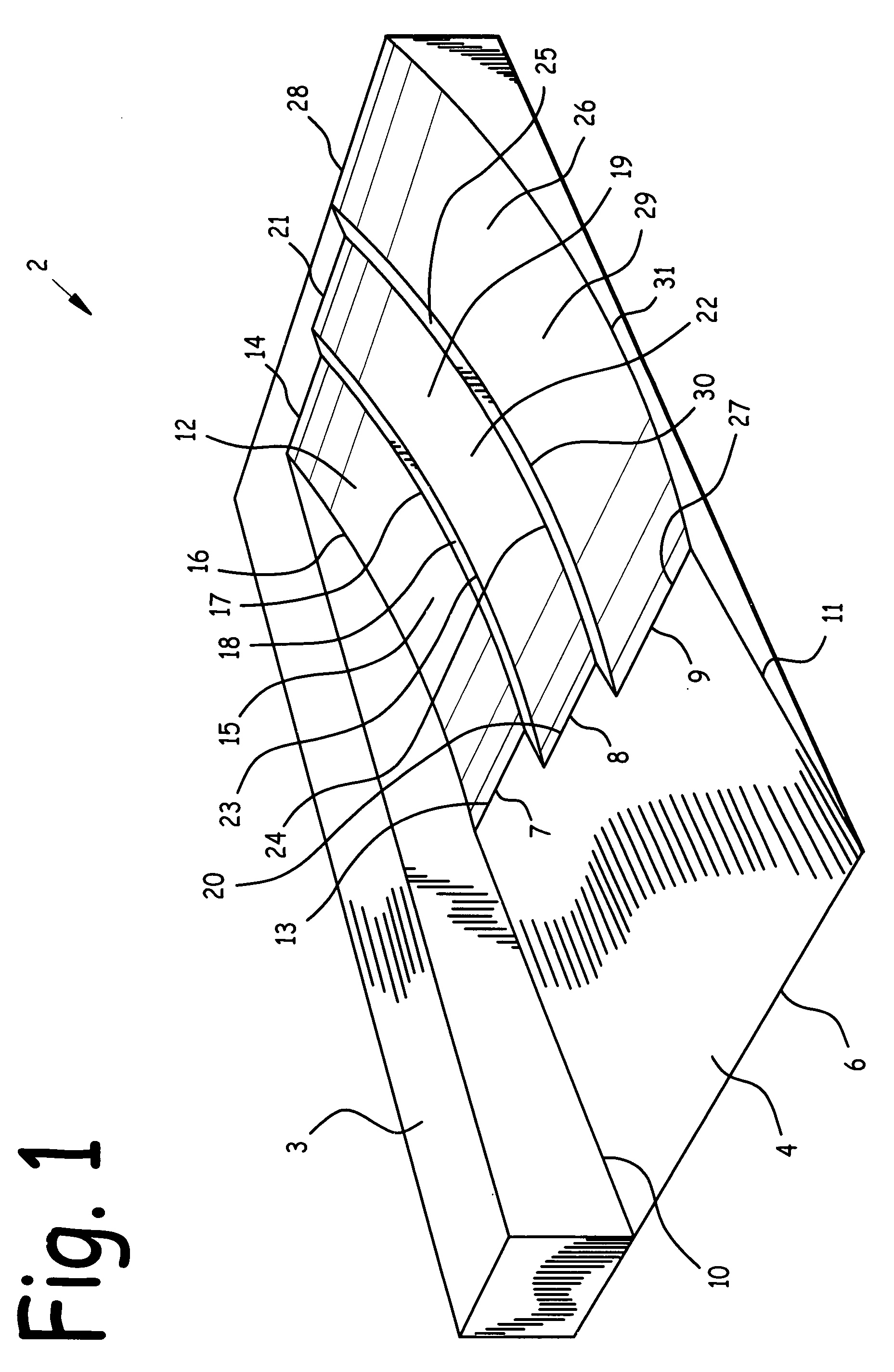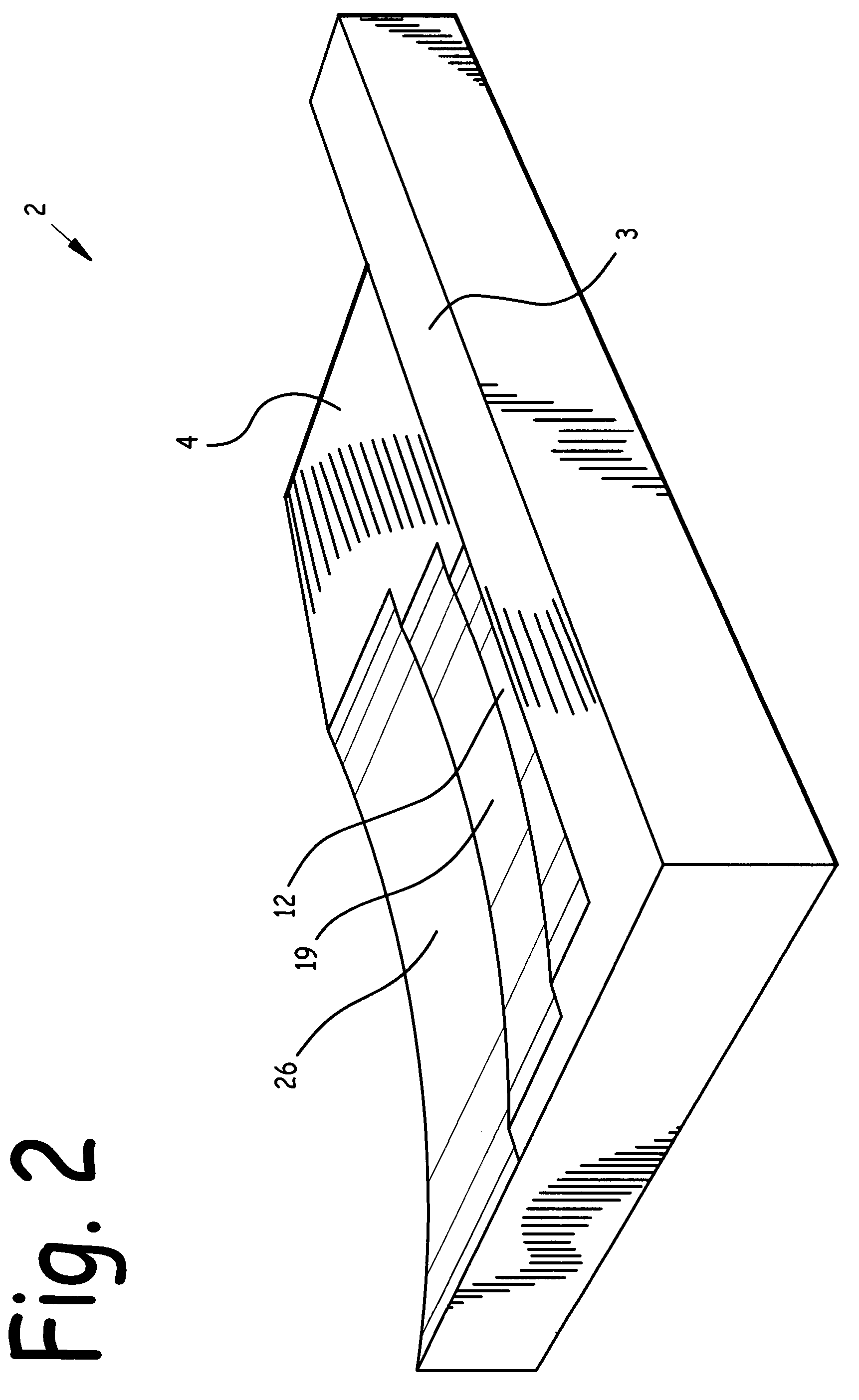Apparatus and method for changing barbell weights
a technology for changing apparatuses and barbells, applied in the field of barbells, can solve the problems of reducing the convenience and speed of changing weights, affecting the efficiency of exercise equipment, so as to reduce the chance of injury, the effect of quick and easy removal and installation, and the convenience of changing weights
- Summary
- Abstract
- Description
- Claims
- Application Information
AI Technical Summary
Benefits of technology
Problems solved by technology
Method used
Image
Examples
Embodiment Construction
[0028]FIG. 1 is a side quarter elevated isometric view of stand 2. FIG. 2 is a left quarter elevated isometric side view of stand 2. FIG. 3 is a right side view of stand 2. FIG. 4 is left side view of stand 2. FIG. 5 is a rear view of stand 2. FIG. 6 is a front view of stand 2. Referring now to these figures, stand 2 comprises ramp 4 sloping up to first cradle 12, second cradle 19 and third cradle 16. Railing 3 is disposed adjacent first cradle 12 along an edge of stand 12 opposite third cradle 26. Because the height of railing 3 exceeds that of first cradle 12, railing 3 serves as a sidewall to prevent a weight disposed in stand 2 from sliding out of first cradle 12.
[0029]Each cradle comprises a cradle floor bounded by a cradle proximal lip, cradle distal lip, cradle inner edge, and cradle outer edge. Each cradle slopes gently downwards from its proximal lip towards its lowest area between its proximal lip and its distal lip, and then slopes gently upwards to its distal lip.
[0030]T...
PUM
 Login to View More
Login to View More Abstract
Description
Claims
Application Information
 Login to View More
Login to View More - R&D
- Intellectual Property
- Life Sciences
- Materials
- Tech Scout
- Unparalleled Data Quality
- Higher Quality Content
- 60% Fewer Hallucinations
Browse by: Latest US Patents, China's latest patents, Technical Efficacy Thesaurus, Application Domain, Technology Topic, Popular Technical Reports.
© 2025 PatSnap. All rights reserved.Legal|Privacy policy|Modern Slavery Act Transparency Statement|Sitemap|About US| Contact US: help@patsnap.com



